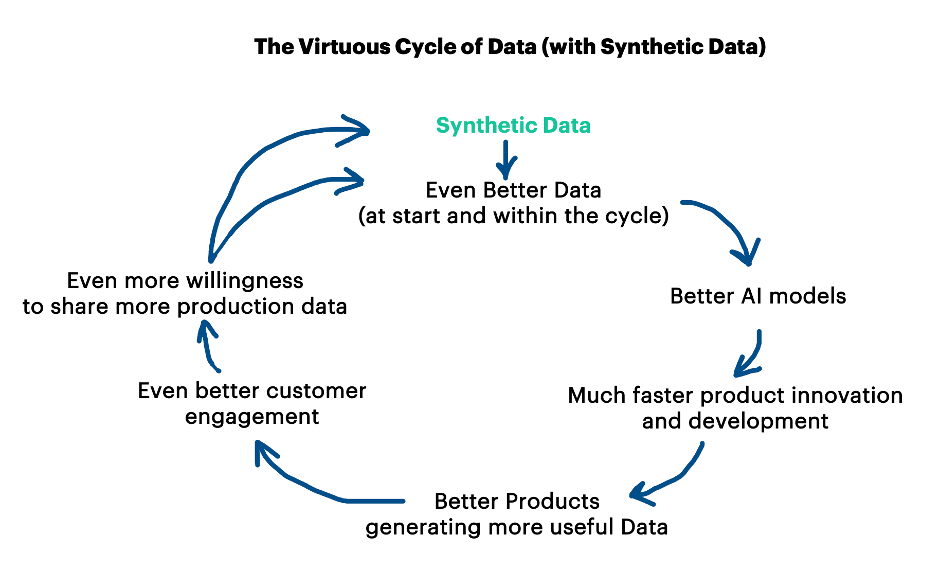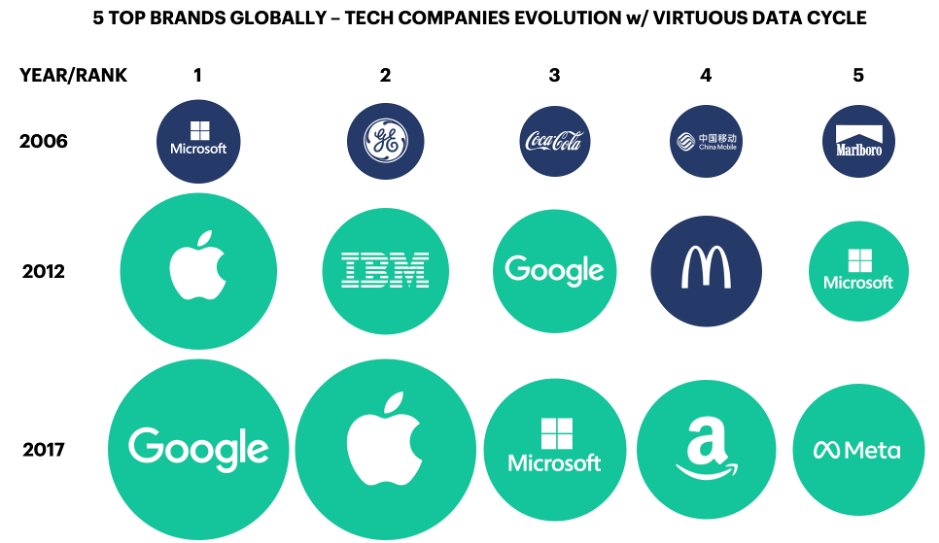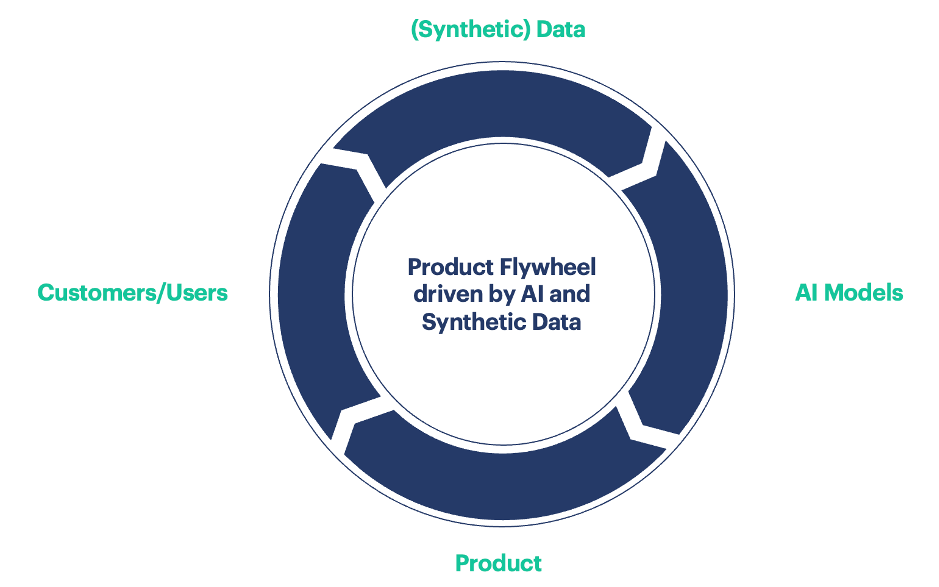
The virtuous cycle of data needs to be expanded by new modalities including synthetic data to further enhance product development and customers willingness to share more data.
When AI technologies are correctly incorporated into a product, they can generate a feedback loop in which such product constantly improves with use, resulting in increased data generation, higher usage and a stronger competitive position relative to rival products.
Over the last decade, digital businesses such as Apple, Amazon, and Google have surpassed many traditional consumer businesses such as Coca Cola, McDonald's, and GE in terms of brand value. There are several variables driving the rapid development in tech brand value, but the virtuous cycle of data for tech businesses accounts for a substantial amount of the growth. Technology firms know their consumers considerably better, even anonymously, than conventional consumer goods companies, and they utilize that customer data to continually enhance their products, which promotes brand affinity and loyalty.

In fact, any product, regardless of its underlying technology, is likely to improve with usage because companies are employing users/customers feedback, enhancement requests and analytics data to get it closer to user requirements. However, this advancement tends to be limited when increased usage data no longer yield significant insight into the future product development.
Contrary to the traditional consumer companies, technology businesses generally have direct contact with their customers. This provides them with additional data on how customers use their products, which they can utilize to directly guide product development and create better user experiences. As the product improves, consumers contribute more data, accelerating the cycle of quicker innovation and better products. Something very similar can be applied to customers/users in the enterprise space when their products become equipped with AI-driven solutions powered by synthetic data. When the underlying technology of a product is AI-driven, it adds an extra level to the usual product development cycle. Additional data makes possible to produce continuous improvement for a very prolonged term with today's AI technology, like SKY ENGINE AI Synthetic Data Cloud for Deep Learning in Vision AI, allowing the cycle to go much longer than before and enhancing the main product for a very long time. Finally, data harvested during usage can be partially replaced by simulated synthetic data leading to further reduction of companies’ idle time to get useful product insights.

This virtuous data loop, driven by user trust, is fueling the growth of many of the world's top machine learning initiatives today. Customers are prepared to contribute more and more data in exchange for better solutions, whether it be Volvo driver monitoring system, AT&T telecom sites maintenance, or Deutsche Bahn railway inspection, which in turn brings better products to their consumers who are willing to share more of their data which even more improves products of these companies and so on.
Not all products can reach a robust virtuous cycle. This is often only possible if the AI technologies generate core value of the product that continuously gains from larger data sets. Products that just utilize machine learning to improve an existing user experience will improve at a slower rate than those whose primary offering is directly linked to an AI and synthetic data technology. Essentially, the companies can faster and cheaper achieve the scale they are seeking taking into account the magnitude of potential customers acquisition with improved products.
With the help of AI and synthetic data (occasionally mixed with conventionally acquired data) traditional companies are becoming technology companies and these businesses will highly increase their use of data to create better products in the coming years. For instance, Walmart will be able to better plan and execute their logistics and warehousing tasks to deliver faster and better predict on-shelf availability and what products I prefer, ESPN will offer more insights into the sports they show and will know what experience I am most interested in, and Apple will better recognize consumers mood through facial expressions understanding to provide improve the offering and recommendations on what products I should explore.
During this transformational shift towards AI-driven products, growing regulatory and consumer inspection of what companies do with customer data will push those organizations to take tougher stands on adopting a more structured approach to transparency regarding data collecting, data storage, and compliance to data protection and privacy. And here also synthetic data comes to significance offering unlimited access to AI training data enabling companies to build trust with their customers and community by creating anonymized synthetic datasets and by working safely with data while preserving privacy thus, continuously demonstrating and delivering exceptional value in addressing real business challenges.
In addition to importance of collecting and safeguarding customer data the companies have to grasp the importance of data simulation, generation and synthesis to realize large benefits of providing superior user experiences. Surely the champions of AI-driven business transformation will be the organizations that include thoughtful solutions fueled with synthetic data in their data strategies.
Learn more about SKY ENGINE AI offering
To get more information on synthetic data, tools, methods, technology check out the following resources:
- Telecommunication equipment AI-driven detection using drones
- A talk on Ray tracing for Deep Learning to generate synthetic data at GTC 2020 by Jakub Pietrzak, CTO SKY ENGINE AI (Free registration required)
- Example synthetic data videos generated in SKY ENGINE AI platform to accelerate AI models training
- Presentation on using synthetic data for building 5G network performance optimization platform
- Working example with code for synthetic data generation and AI models training for team-based sport analytics in SKY ENGINE AI platform





